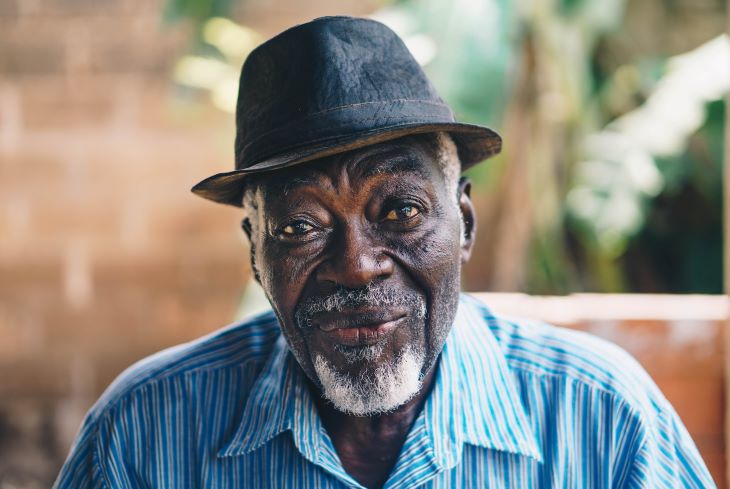Quick Links for Alcoholism & the LGBTQ Community
- Alcoholism and the LGBTQ community
- The impact of minority stress in the LGBTQ community
- Women, alcoholism and the LGBTQ community
- The consequences of alcoholism in the LGBTQ community
- Treating alcoholism in the LGBTQ community
- Getting support for alcoholism in the LGBTQ community with OK Rehab
- References for alcoholism and the LGBTQ community
It is unfortunately common for members of the LGBTQ community to experience difficulties with alcoholism.
The rate of dependency is found to be higher when compared to heterosexual adults, [1] and there are several reasons behind this.
In order to ensure that the link between alcoholism and the LGBTQ community is addressed and as many people as possible are provided with relevant treatment, the potential causes of their susceptibility, as well as the consequences of alcoholism, need to be identified.
To find out more about alcoholism and the LGBTQ community, simply reach out to our 24/7, confidential hotline on 0800 326 5559.
Alcoholism and the LGBTQ community

Support group discussing alcoholism in the LGBTQ community
To tackle the problem of alcoholism and the LGBTQ community, it is essential to first address the underlying reasons why individuals are more at risk of becoming dependent on alcohol.
Of course, every case of alcohol dependency and wider addiction is different, but it can help to acknowledge common reasons that push many members of the LGBTQ+ community into addiction.
Living with prejudice
Members of the LGBTQ community are unfairly exposed to a great deal of resentment and hostility on account of who they are.
Bigotry can be found everywhere in society, and while society has improved a great deal when it comes to respecting the rights of homosexuals, transgender individuals, and other LGBTQ members, unfair treatment and abuse is still common.
Alcohol is a substance which creates a pleasant, numbing high for those who consume it.
As a result of the hatred and maltreatment individuals face, they might turn to drinking in order to suppress sadness and frustration.
Lack of support network

Young person looking out of a window considering alcoholism in the LGBTQ community
One of the most common triggers for alcohol dependency is the absence of a sufficient support network.
Everyone struggles in life, and when individuals don’t have a family to depend on for emotional, sometimes financial support, they can turn to substances like alcohol.
Within the LGBTQ community, individuals can often be deprived of this kind of support.
Families and friends can distance themselves as a result of who that individual is, leaving them to cope alone with everyday difficulties, as well as those inflicted upon them by bigotry.
As a result, LGBTQ individuals are more likely to rely on alcohol and the calming effects that it has, increasing their likelihood of developing a dependency.
Socialising
For a long time, members of the LGBTQ community were only able to socialise and be themselves in certain environments such as gay bars.
These institutions became pivotal for socialising and for essential self-expression.
Spending so much time in these locations, however, imparted a culture of alcohol consumption within the community.
It aided expression and conversation, and while helpful for the formation of bonds between individuals, it normalised drinking.
Alcoholism is only able to develop when an individual has frequent exposure to alcohol, and one of the most common risk factors is when individuals learn to perceive its consumption as normal and socially acceptable.
The impact of minority stress in the LGBTQ community

Older person discussing alcoholism in the LGBTQ community
Addictions like alcoholism are often fuelled or triggered by the presence of another mental health condition.
Individuals can find their desire to consume alcohol stems from the negative feelings triggered by their anxiety, depression, or trauma.
When this is the case, it is referred to as dual diagnosis. One such condition that is common amongst LGBTQ individuals is minority stress. [2]
This condition is defined by the harmful thoughts and feelings an individual experiences as a result of social injustice, marginalisation, and prejudice.
As referred to above, those who identify as homosexual, for example, are often abused for it, and this treatment can trigger minority stress.
A few symptoms of this condition include:
- Intense waves of sadness, anger, and frustration, often developing into depressive states
- Increased isolation and seclusion
- Paranoia and self-doubt regarding identity and life purpose
These effects are all immensely stress-inducing, and individuals can feel urges to self-harm or commit suicide when they strike.
Much like with anxiety and depression, individuals who experience minority stress can learn to see alcohol as an effective way of coping.
Women, alcoholism and the LGBTQ community

Woman at a pride march thinking about alcoholism in the LGBTQ community
Women within the LGTBQ community can experience very different abuse on account of their status as both a member of the community and a woman.
This can lead to significant rates of alcohol dependency.
In fact, studies show that while the rates of alcoholism in the LGBTQ community are higher than those of heterosexual individuals, the difference between the females of both groups tends to be much wider. [3]
The consequences of alcoholism in the LGBTQ community
Consuming excessive quantities of alcohol can have very serious consequences for an individual’s physical health.
Some of the most serious effects include:
- Weakened immune system
- Increased risk of heart problems
- High blood pressure
- Increased risk of cancers (throat, liver, etc) [4]
- Liver damage, potentially triggering complete failure
- Insomnia and fatigue
But alcohol is also a substance that greatly impacts the psychological well-being of those who take it.
It is a depressant, meaning that it can seriously interfere with emotional and hormonal patterns.
Specifically, alcohol dependency can spark mood swings, increased aggression, or prolonged spells of depression or hyper-anxiety.
And it is not just the individual themselves who suffers as a result of alcoholism. Unpredictable behaviour can result in aggression towards friends and family, and the process of the addiction developing and creating problems can cause great distress.
Treating alcoholism in the LGBTQ community

Two people holding hands discussing alcoholism in the LGBTQ community
In order to appropriately treat the variety of effects caused by alcoholism, it is recommended that individuals go into rehab.
This process is widely deemed to be the safest and most effective route to recovery.
What does rehab involve?
Rehab is broken up into three main stages: detox, therapy, and relapse prevention.
When an individual first enters an alcohol rehab facility and is settled in, they undergo detox, a process which looks to get rid of the physical dependency they have on alcohol.
Individuals quit their alcohol use and endure the resulting withdrawal symptoms under the supervision of medical professionals who make sure they do not come to any harm.
If individuals are struggling, specialised medications can be provided to dampen withdrawal’s impact.
Once individuals have gone through this process and do not have the overwhelming impulse to drink alcohol, it is time for them to engage in therapy.
This stage can look different depending on what method suits an individual. Some might prefer to work one-on-one with a therapist, whereas others might thrive learning from others who are also going through treatment.
The overall objective of therapy is to engage with the causes of alcoholism and provide individuals with the skills and techniques to effectively manage them going forward.
Finally, individuals work with an addiction specialist to create a relapse prevention plan, designed to help them maintain the progress they’ve made when they go home and resume everyday life.
Those struggling with the effects of alcoholism and the LGBTQ community can receive an individual care plan tailored to their unique battle with addiction.
Alternatives to rehab

Older woman smiling and discussing alcoholism in the LGBTQ community
As effective as it is, inpatient rehab is not the only option for addiction treatment. Some individuals with milder conditions may not be able to give up their other responsibilities and go into a facility, so alternatives are available.
For example, individuals can attend outpatient care which allows them to meet with an addiction specialist and receive treatment via regular sessions.
Options such as these can be effective, but only when an individual is not at risk of harming themselves or others as a result of their condition.
If that is the case, inpatient rehab is the only appropriate option.
Getting support for alcoholism in the LGBTQ community with OK Rehab

Young person looking for help with alcoholism in the LGBTQ community
If you are a member of the LGBTQ community and are struggling with your alcohol consumption, please do not suffer in silence.
There is so much support out there, and the world of addiction treatment is one of understanding and compassion.
Getting into treatment can seem like a daunting process, but at OK Rehab we are here to help get whoever needs help into appropriate and effective care.
Alcoholism need treatment as soon as possible, so don’t hesitate to get in touch by calling 0800 326 5559 if you are concerned about your alcohol use or that of someone you care about.
At OK Rehab, we offer free advice from a team of non-judgemental professionals, many of whom are themselves in recovery and understand how hard it can be to change your relationship with addiction.
References for Alcoholism and the LGBTQ Community
[1] https://nida.nih.gov/drug-topics/substance-use-suds-in-lgbtq-populations
[2] https://www.ncbi.nlm.nih.gov/pmc/articles/PMC5846479/
[2] https://www.ncbi.nlm.nih.gov/pmc/articles/PMC4872607/
[4] https://www.cancer.gov/about-cancer/causes-prevention/risk/alcohol/alcohol-fact-sheet






